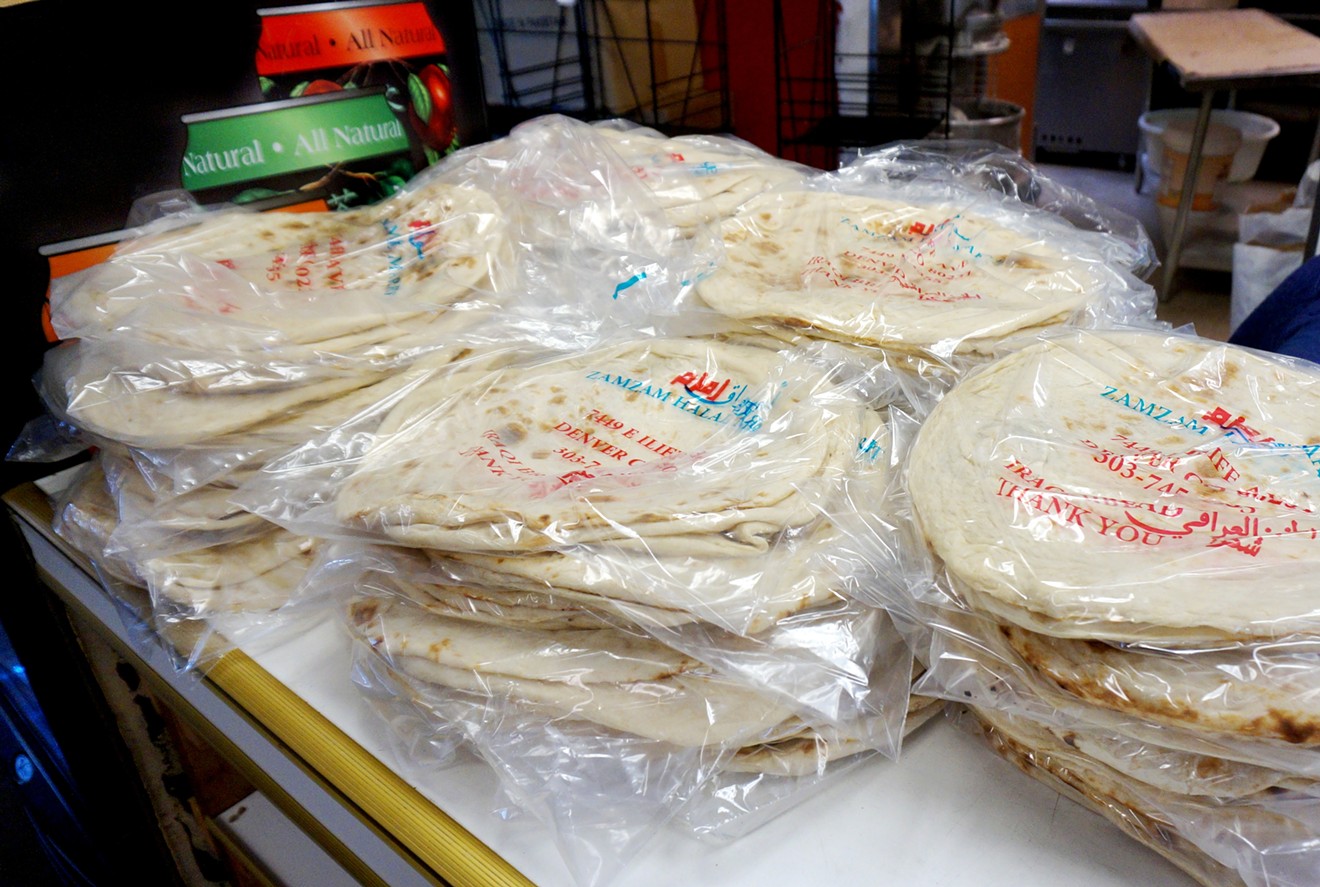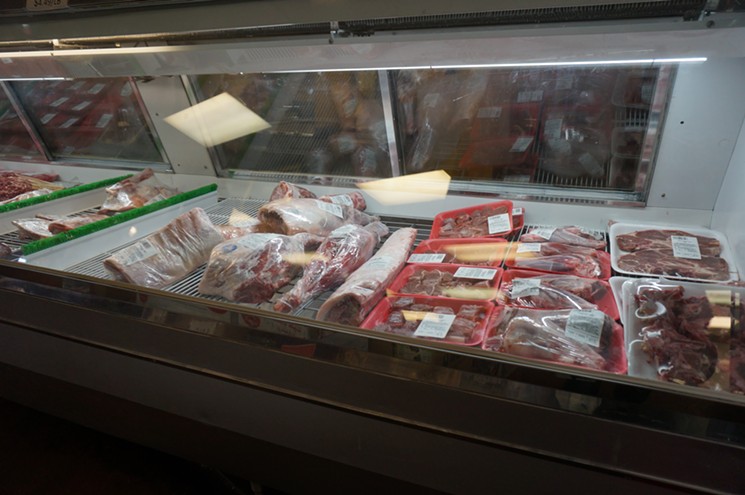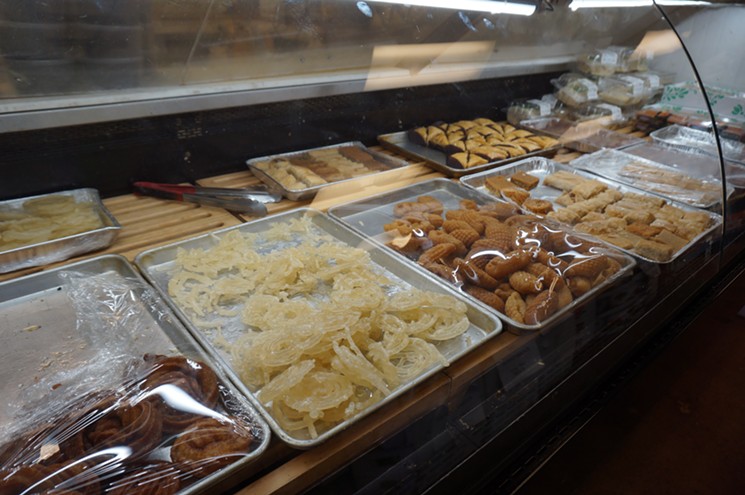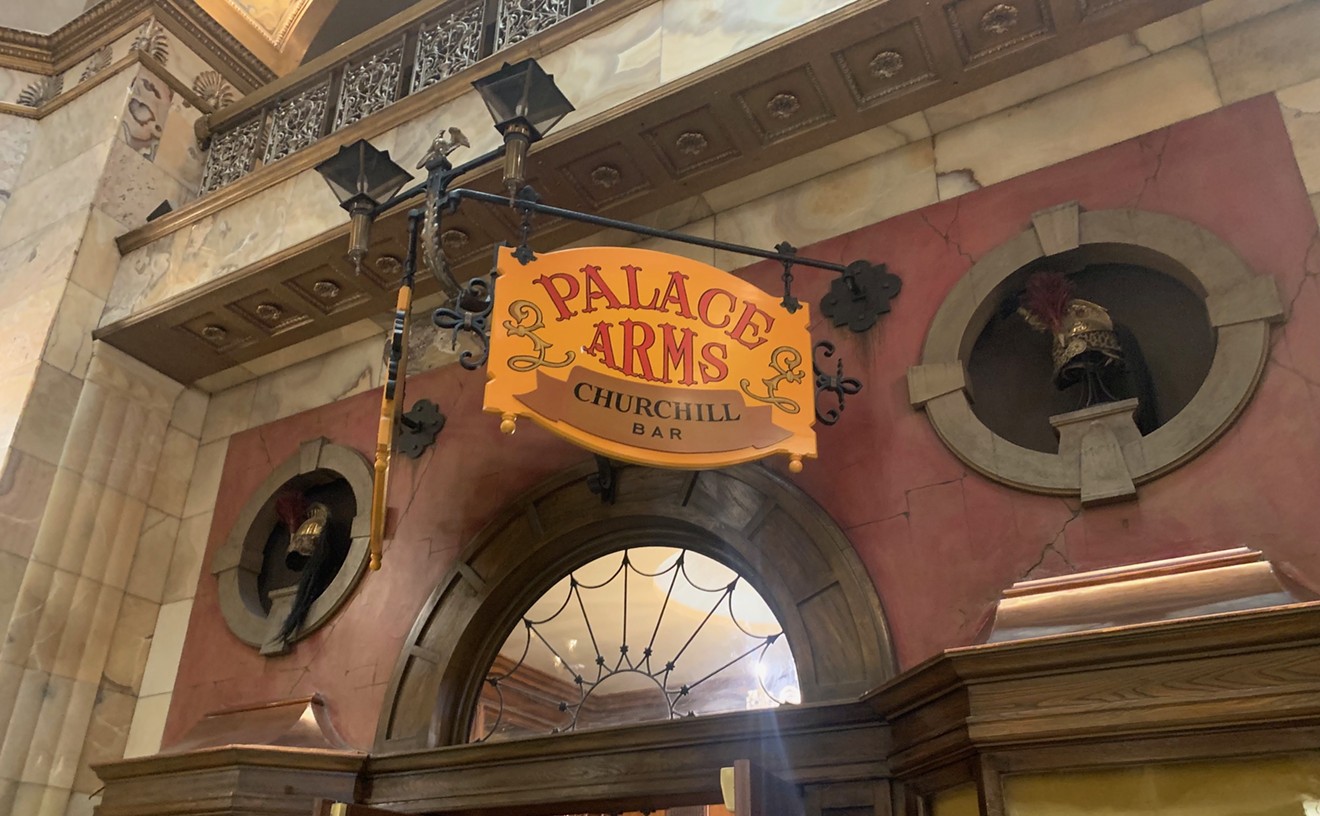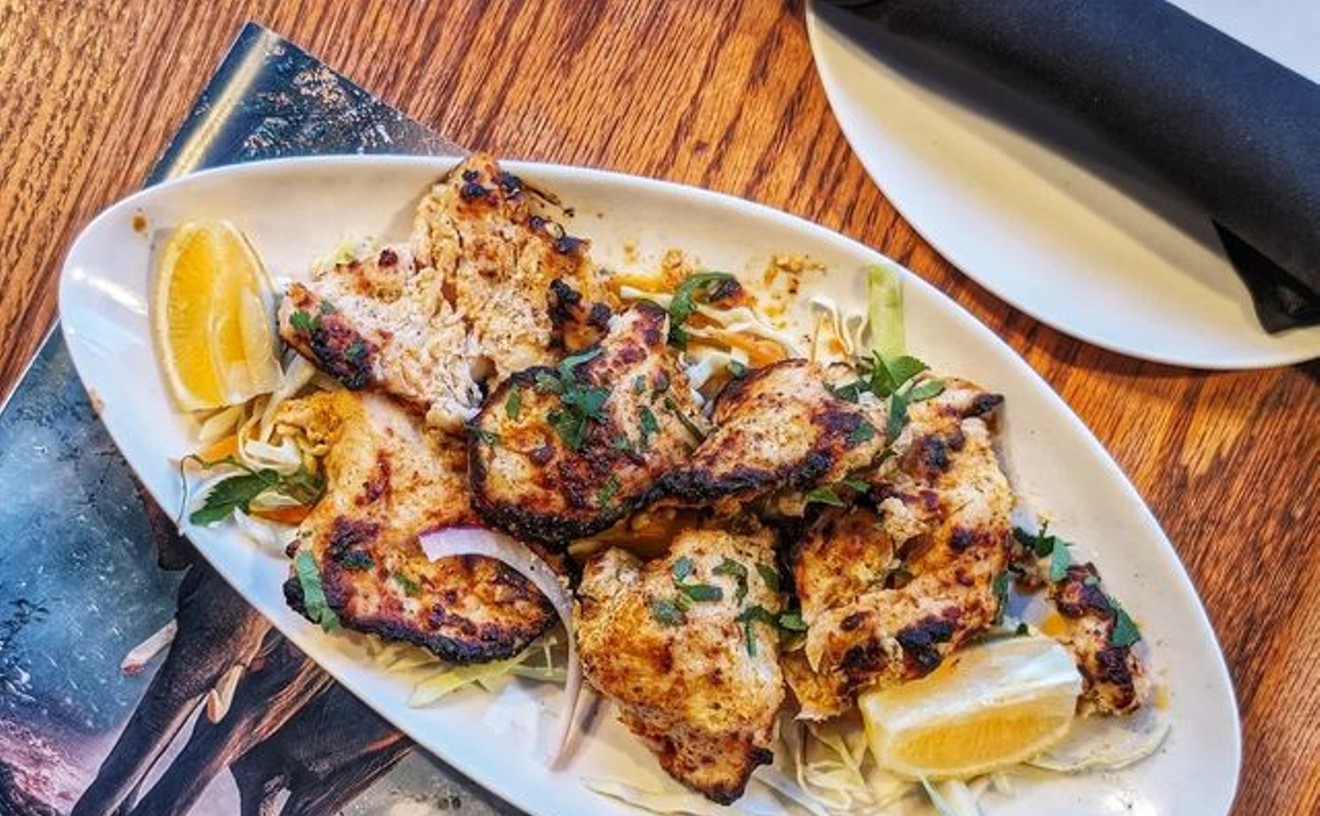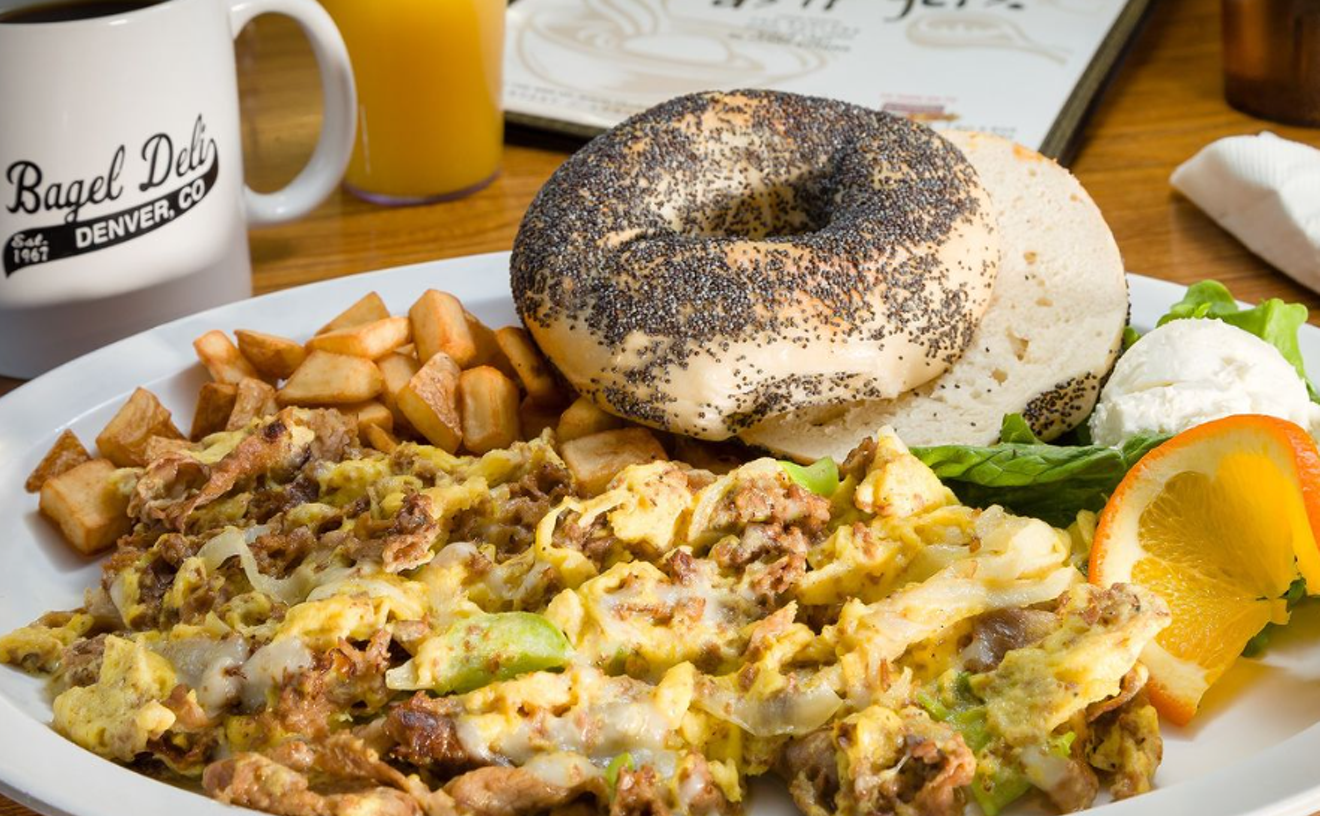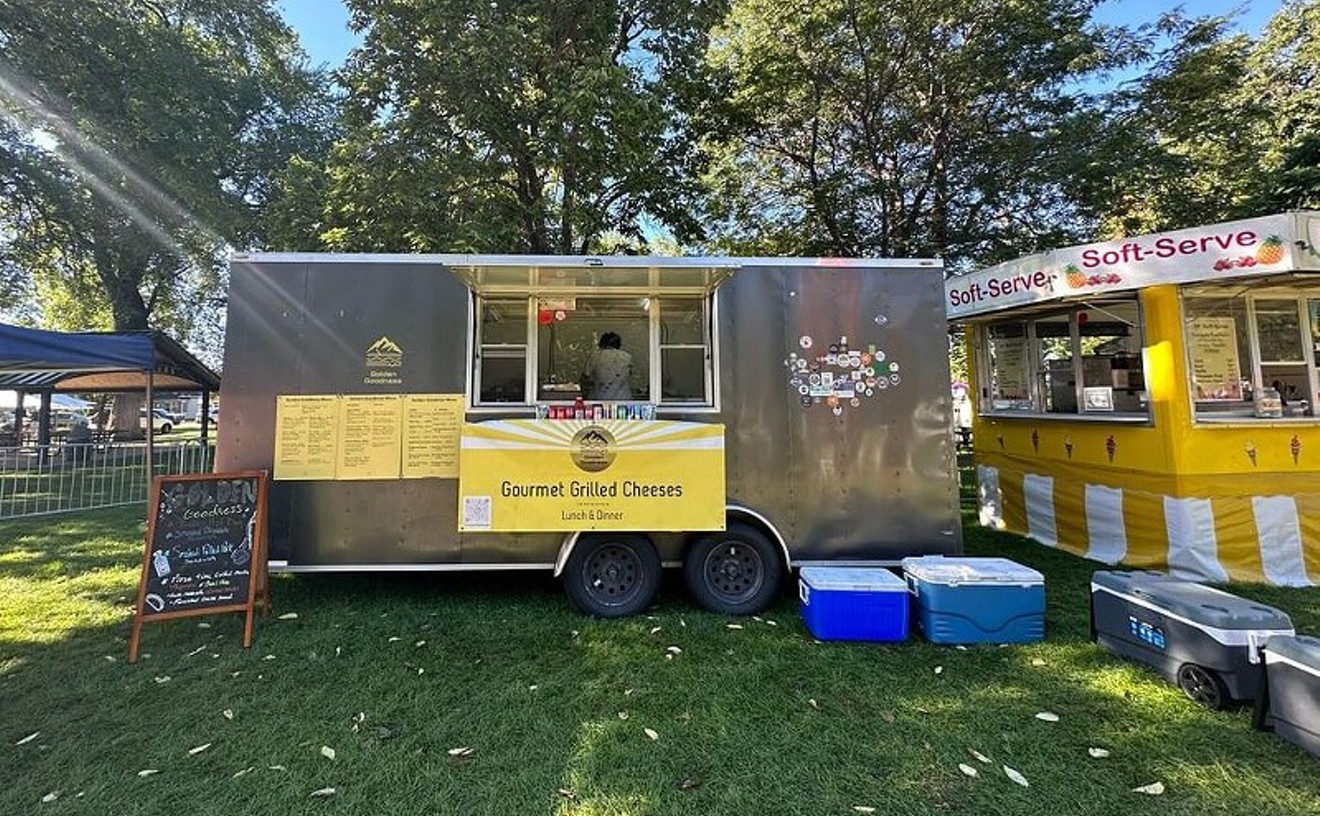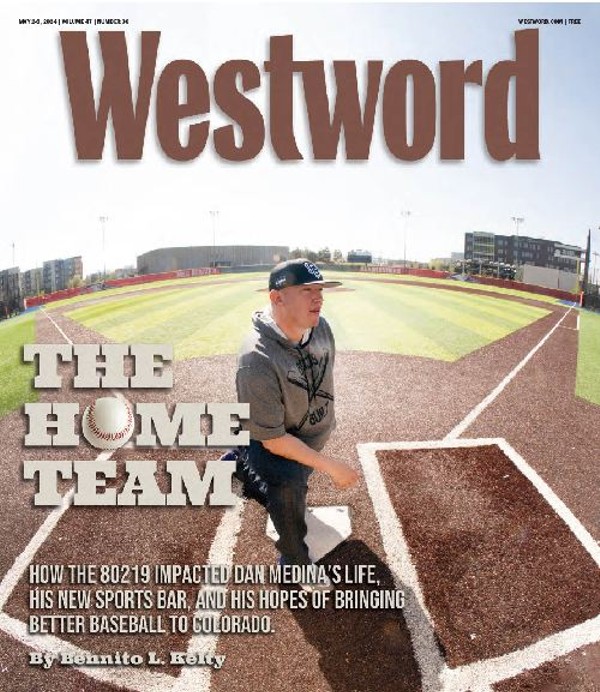Located at the corner of East Iliff Avenue and South Quebec Street on Denver’s eastern frontier (technically in a no-man’s land between Denver and Aurora), the market caters to the area’s Muslim community with halal meat and plenty of imported goods for preparing the traditional dishes of a number of Middle Eastern countries. Owner Mohammed Almosawi is a native of Basra, Iraq, and one of the specialties of his shop is fresh-baked Iraqi flatbread that’s about as far from standard pita bread as Denver is from Basra. Like pita, the flatbread, called khubz, is baked round and flat in a super-hot dome oven (often plastered to the inner wall of the oven). But Zamzam’s flatbread is a good fourteen inches in diameter and has no pocket in the middle. And instead of being dry and thin, like most packaged pita, or fat and fluffy in the style of Greek diners, this bread is chewy and just a little stretchy, with a porous interior and a blistered skin — charred in places — that’s almost crackly, but not quite.
Running an import market can be a difficult proposition for immigrants, and a Middle Eastern market comes with particular challenges. Fear of the unknown combined with political hype can combine to cause trepidation for those unfamiliar with Iraqi culture and food. Trepidation, and worse: An act of arson destroyed one of Zamzam’s delivery trucks a year ago. Still, Almosawi and his employees offer warm greetings to whoever enters Zamzam. Most of the market’s customers are thoroughly familiar with Almosawi’s offerings — and for non-Arab newcomers, the aroma wafting from the bread oven acts as a silent ambassador for the owner’s homeland.
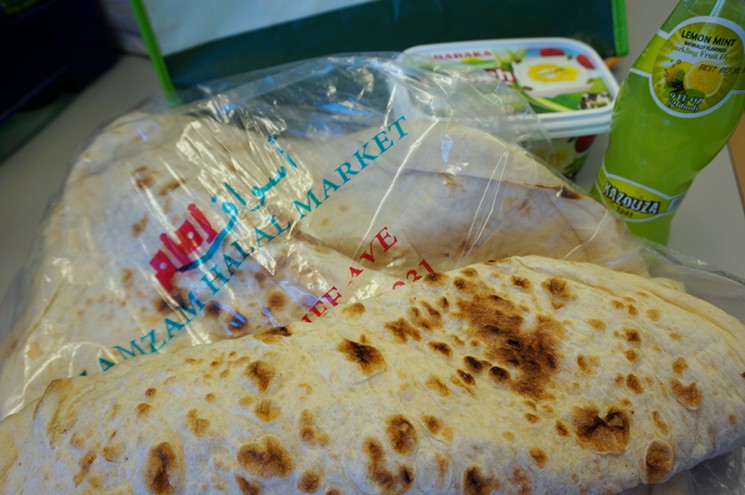
Iraqi flatbread, labneh cheese and a lime-mint soda make a simple but satisfying lunch.
Mark Antonation
If you time your visit right, you can score a bag of four flatbread rounds for the ridiculously low price of $2.99 and some kebabs to go with it. The kitchen makes lamb and beef kebabs; the meat is coarse-ground, seasoned and formed into long, wavy slabs on flat skewers that resemble bayonets. But while fresh bread is available from lunchtime until it’s gone, the kebabs only make an appearance later in the day (call ahead for the exact time). If you’re at the market and hungry before the kebabs are ready, you can buy a single flatbread for a dollar and then pick up a tub of labneh cheese (like tangy cream cheese — the Baraka brand is a good bet) from the cooler for a simple but delicious meal.
Or pick up supplies to make a meal at home. Zamzam’s meat counter is impressive, with fresh (not frozen) beef, lamb and goat cuts at reasonable prices. There are lamb shanks and rib racks, as well as small half lambs that include both hind legs along with the rump and flank. (It’s basically the entire back half of the lamb, for those not familiar with the cuts.) The goat is similarly portioned, and the butcher will break down bigger pieces for you; the beef is mostly larger cuts meant for braising or slow-roasting, along with leg bones for soups and stocks. Whole fresh chickens are also available.
Opposite the butcher counter is a pastry case filled with such house-baked sweets as zalabia (the funnel cake’s more delicate, honey-soaked cousin); fritters that resemble churros coiled into tight spirals; flaky, layered squares of baklava (or something similar); and many other styles of baked and fried treats.
Up front, a few tidy aisles are packed with cans and jars of condiments, pickled vegetables, olives and olive oils. With so many new and unfamiliar items, each row requires two or three passes before you can take everything in. Little tins of tuna and sardines nestle up near Lebanese-style pickled radishes, while jars of harissa, deep red from puréed chile peppers, run up against tomato-based sauces. There are stacks and stacks of dates of different varieties and countries of origin, some firm and dried and others sticky and dark. A bulk section offers dried beans, grains and a multitude of rice varieties, some mixed with seasonings and others blended with lentils or vermicelli noodles; you can pick up inexpensive whole wheatberries, bulgar, polenta and barley by the pound. And, of course, you’ll find hummus, grape leaves for making dolmades, bags of sesame seeds (so you can skip those tiny, overpriced jars in the spice aisle at your supermarket) and other Mediterranean staples.
Colorful sodas line the cooler shelves, with brand names like Kazouza and flavors from lemon-mint to watermelon; even standard brands like Mountain Dew come labeled in Arabic script. Inside the cooler, firm and soft cheeses — like that keffir-based labneh cheese — give way to a section of frozen foods: packs of filo dough, dumplings and other snacks as well as more meats.
Daytime traffic in the shop is a slow but steady trickle that picks up closer to the dinner hour. That’s when the butcher gets a little busier with custom cuts (a sign warns customers not to interrupt while he’s manning the butcher’s saw), and the stacks of flatbread disappear quickly. Zamzam is open daily from 9 a.m. to 9 p.m.; even if you’re not sure what you’d do with a half a lamb or a sack of bulgar, the flatbread is a must-buy. You’re unlikely to find something as fresh and soft and warming anywhere else in town. It’s a minor miracle that a place as unassuming as Zamzam could be the source of something so wonderful.

